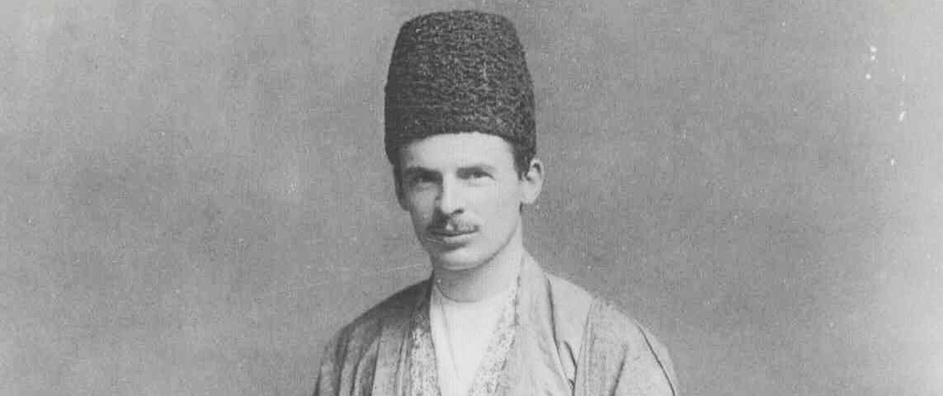In the evolving tapestry of spiritual thought, one might ponder: What transpires when a Western scholar, steeped in empirical reasoning and analytical methodologies, encounters an Eastern prophet, whose cache of wisdom is imbued with mysticism and transcendental insight? This intriguing juxtaposition poses a significant challenge. It raises questions about the compatibility and synthesis of diverse paradigms of understanding, particularly as they pertain to the Bahá’í teachings. Could such a meeting herald a new age of interfaith dialogue and mutual enlightenment, or will it merely underscore the chasms between rationalism and spirituality?
To accurately navigate this discourse, it is essential first to elucidate the foundational tenets of the Bahá’í Faith, a religion that champions the oneness of humanity and the unity of all religious teachings. Established in the 19th century by Bahá’u’lláh in Persia, the Bahá’í teachings advocate for progressive revelation, a concept that posits that divine knowledge unfolds in accordance with humanity’s evolving capacities. Herein lies a pivotal point of intersection for a Western scholar and an Eastern prophet: the comprehension that every religion contributes to a cumulative truth, thereby fostering a shared foundation for interfaith collaboration.
In delving further into this intersectionality, one may extract several profound insights from Bahá’í teachings, which can illuminate the dialogue between a methodical Western scholar and an ascetic Eastern prophet.
**Understanding Progressive Revelation**
At the core of Bahá’í philosophy is the idea of progressive revelation, which suggests that divine guidance is not static but rather evolves as humanity matures. This notion might resonate with a Western scholar who appreciates the historical context of knowledge development—thinkers like Immanuel Kant and Hegel who emphasized development in stages. However, the challenge emerges when one grapples with the spirituality intertwined within this intellectual framework. Can empirical methods adequately assess spiritual experiences? The scholar might initially contend that they cannot. Yet, the Bahá’í perspective invites an open curiosity, suggesting that empirical inquiry may coexist with spiritual exploration.
**Balancing Rational Thought and Spiritual Insight**
Another key tenet in Bahá’í teachings emphasizes the harmony between science and religion, a principle that might intrigue a Western scholar accustomed to segregating empirical evidence from metaphysical reflection. The scholar may confront the dilemma of whether to approach spiritual texts with the same critical lens employed in academic discourse. Herein lies the potential for a rich dialogue: a synthesis of analytical rigor with spiritual intuition can yield a more nuanced understanding of both realms. This interplay challenges the notion of exclusivity in either domain, promoting a comprehensive pursuit of truth.
**The Common Good and Social Action**
In Bahá’í teachings, social justice and the common good emerge as salient themes. With a framework that implores adherents to engage actively in societal betterment, Bahá’í philosophy aligns with the Western scholar’s inclination toward empirical activism. This offers fertile ground for collaboration. What might a joint endeavor look like in practice? For instance, integrating scholarly research with community-based initiatives could enhance both a rational understanding and a spiritual commitment to social reform. Yet, might the differing motivations—academic accolades versus spiritual fulfillment—create discord? This potential friction could serve as a profound learning opportunity for both parties, prompting deeper exploration into personal motives and shared objectives.
**Universalism vs. Particularity: A Philosophical Dilemma**
A salient challenge arises in the tension between universalism, as advocated by the Bahá’í teachings, and the particularity often favored by scholars entrenched in Western thought. The idea that all religions stem from the same divine source may contradict a scholar’s entrenched belief in the uniqueness of cultural narratives. This philosophical impasse may provoke a necessary confrontation with the assumptions surrounding religious authority and interpretative frameworks. How does one reconcile the claims of universal truth with the multiplicity of religious experiences? This question drives a deeper inquiry into the essence of faith itself, ultimately leading to the recognition that diversity in belief can enhance, rather than diminish, the quest for truth.
**Ethical Discourse and Moral Responsibility**
The Bahá’í teachings are replete with ethical imperatives that promote principles such as honesty, integrity, and the sanctity of human life. Scholars trained in rigorous ethical analysis might find themselves navigating a landscape where moral considerations are intertwined with spiritual obligations. What does ethics look like when viewed through the lens of divine guidance? Can the abstract principles of philosophical reasoning be harmonized with the fervor of a spiritual calling? Here lies the challenge: to develop an ethically robust framework that accommodates both rational deliberation and spiritual insight, potentially transforming ethical discourse in ways that disrupt traditional paradigms.
**Concluding Reflections**
As the Western scholar engages with the Eastern prophet, an intellectual ballet is set in motion—one that is fraught with challenges, yet rich in potential. This encounter embodies the promise of a deeper understanding that transcends binaries, ostensibly merging the realms of scholarship and spirituality. The Bahá’í teachings, with their emphasis on unity, progressive revelation, and ethical universality, provide a fertile ground for such explorative dialogues.
Ultimately, the question remains: can the synthesis of a rationalistic worldview with a spiritually expansive one indeed cultivate a transformative understanding of the human experience? As one navigates this intricate interplay, new horizons of thought, consciousness, and collective action emerge—whether in academia or spiritual practice, or ideally, within the converging boundary where both meet. In this 21st century, the dialogue between Western scholars and Eastern prophets might just herald a renaissance of spiritual and intellectual exploration, inviting all to a richer tapestry of understanding.
